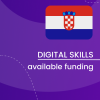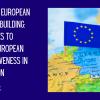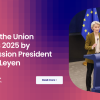What's in the EU budget for digital skills? Commission proposes close to €2 trillion in 2028-2034 MFF, boosting funding for digital capacity
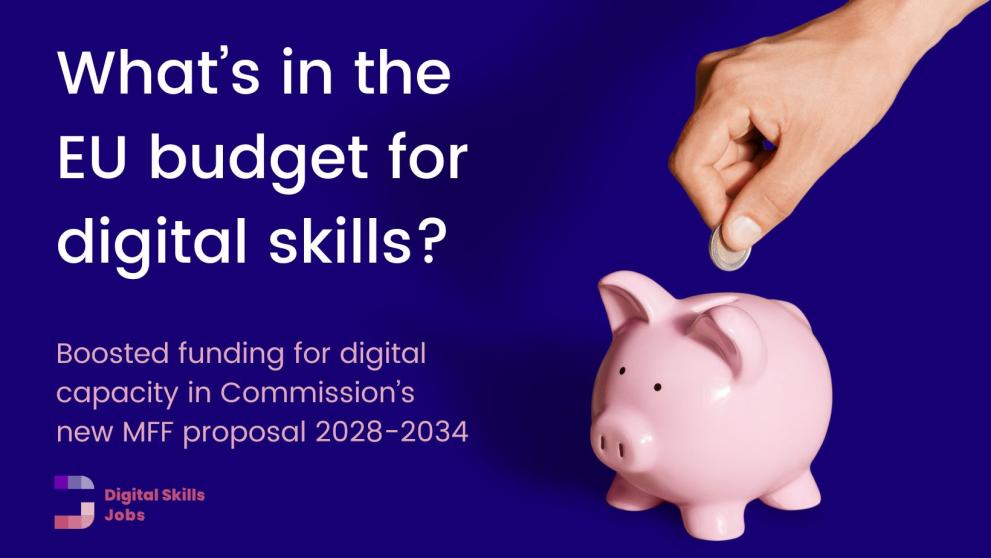
On 16 July, the European Commission unveiled its proposal for the next long-term budget of the European Union: the Multiannual Financial Framework (MFF), which covers the period from 2028 - 2034. Valued at almost €2 trillion, the MFF aims to see an "independent, prosperous, secure and thriving" Europe as the next decade rolls in. In comparison, the current MFF, which is running from 2021 until 2027 amounts to just €1.2 trillion, or about 1% of the EU's gross domestic product (GDP).
Digital policy stands out as a key area in the Commission's new MFF proposal, reflecting a strategic shift, where digital skills are no longer regarded as a need but rather as a core, fundamental basis for EU sovereignty, competitiveness and resilience. So what does the EU's new long-term budget of the EU hold for digital skills in the decade to come and how will digital and skills be financed? Let's find out.
The art of the EU's long-term budget, the MFF
Before we go into the specifics of the MFF proposal, let's get some basic things out of the way first. What is the MFF? The Multiannual Financial Framework (also known as the EU's long-term budget) comes complementary to national budgets, only coming into play when spending on EU level rather than the national one is the more reasonable and cost-effective option. As a general rule, the MFF sets out the spending priorities and limits for a number of years ahead. It is on this basis that the annual EU budget is then prepared.
The new MFF identifies ‘digital leadership’ as one of 4 core thematic areas with a budget of €51.5 billion: this is five times the combined budgets of the Digital Europe Programme and the Connecting Europe Facility under the current MFF. In this way, the Commission's draft proposal for "an ambitious budget for a stronger Europe" underlines the key role digital systems play in ensuring Europe's economic and political resilience. This means digital capacity is now all the more a strategic asset, which requires consistent and sustained investment, and not simply one of the drivers of innovation.
The proposal also recognises some current challenges require stronger measures. Europe must perform better and excel at offering the perfect conditions for its companies, SMEs and employees to thrive in, as stated in the reports of both Draghi and Letta that delve into European competitiveness strategies. Investments in frontier technologies with the potential of unlocking a brighter future like AI or quantum, are also key - and so is secure, high-quality digital infrastructure.
Digital skills and employment in the EU's new MFF
European Competitiveness Fund (€409 billion)
To address critical shortages and upgrade the ability of the continent to withstand and mitigate adverse circumstances, the new EU Competitiveness Fund planned under the MFF brings an envelope of €409 billion (including Horizon Europe) in an unprecedented boost in EU budget support to research, innovation, development and deployment. This is in line with recommendations of both Draghi's and Letta's reports.
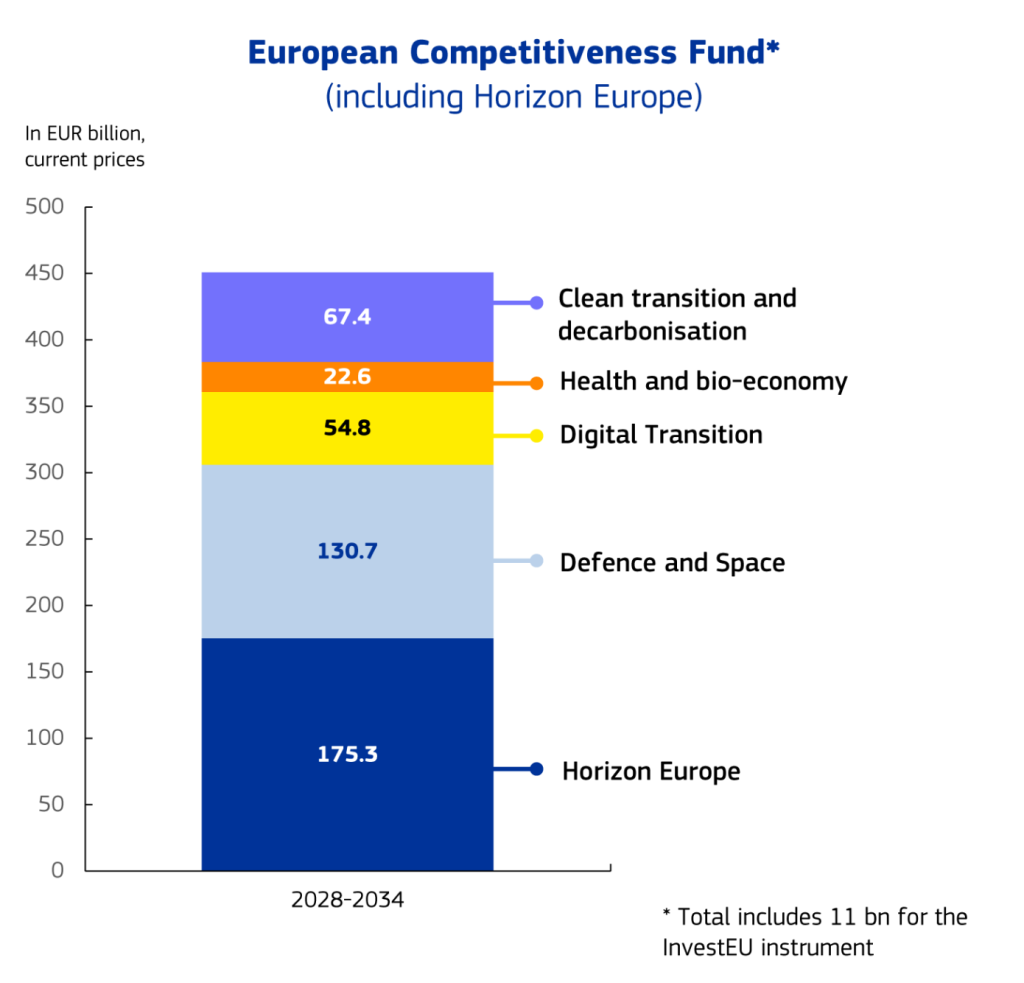
Complemented by a stronger Horizon Europe (the budget of which almost doubles under the new MFF), the Competitiveness Fund aims to provide support and investment to European innovators, from the very idea to scaling up. Linked to the Competitiveness Compass, the new Fund strengthens EU competitive edge in several strategic sectors, facilitating also multi-country and cross-border projects with high EU value added. The Fund is expected to contribute to the creation of high-quality jobs and will create a single gateway to applicants looking for funding, accelerating EU finding and acting as a catalyst for both public and private investment.
Support under the EU Competitiveness will be provided against 4 axes:
- clean transition and decarbonisation;
- digital transition;
- health, biotech, agriculture and bioeconomy;
- defence, and space.
Boosting EU's research framework, Horizon Europe, with €175 billion
Complementary to the Competitiveness Fund is boosted support for Horizon Europe, the main research and innovation framework of the European Union. Under the new MFF, its budget almost doubles, from €95.5 to €175 billion. Commission plans for Horizon Europe see the programme to continue operating as a self-standing financing instrument closely linked to the Competitiveness Fund through integrated work programmes for collaborative research and a common rulebook.
The new Horizon Europe will be simplified and reinforced, enabling faster and more strategic EU spending through clearer rules and more transparent procedures for applicants and stakeholders. It will support cross-sectoral fundamental research actions, relying on its well-established excellence-driven approach and preparing the future engines of growth and technological leadership. Horizon Europe will be built around 4 pillars: 1) Excellent Science, 2) Competitiveness and Society, 3) Innovation and 4) the European Research Area. An expanded European Research Council (ERC) will promote cutting-edge, breakthrough science and the European Innovation Council (EIC) will be reinforced to provide adequate support to start-ups. Together with boosted funding under the European Social Fund (ESF+), a stronger Horizon Europe and the new EU Competitiveness Fund will support up- and re-skilling initiatives for all, and the creation of quality jobs in key strategic sectors: lifelong learning, education, training projects and apprenticeships.
Stepping up investment in skills
Boosting investment in skills is fundamental to help EU students and workers embrace opportunities, including promoting artistic and cultural freedom. The long-term budget will continue to invest in the areas of skills, culture, media and values:
- A reinforced Erasmus+ programme with boosted funding will remain the backbone of the Union of Skills. Principles like education mobility, solidarity and inclusiveness will continue to underline virtually all aspects of the programme.
- A new AgoraEU programme will be launched as a way to reinforce and further promote shared European values, including democracy, equality and the rule of law and support the European cultural diversity. The programme will provide support to audiovisual and creative sectors, media freedom and foster the involvement of civil society circles and groups.
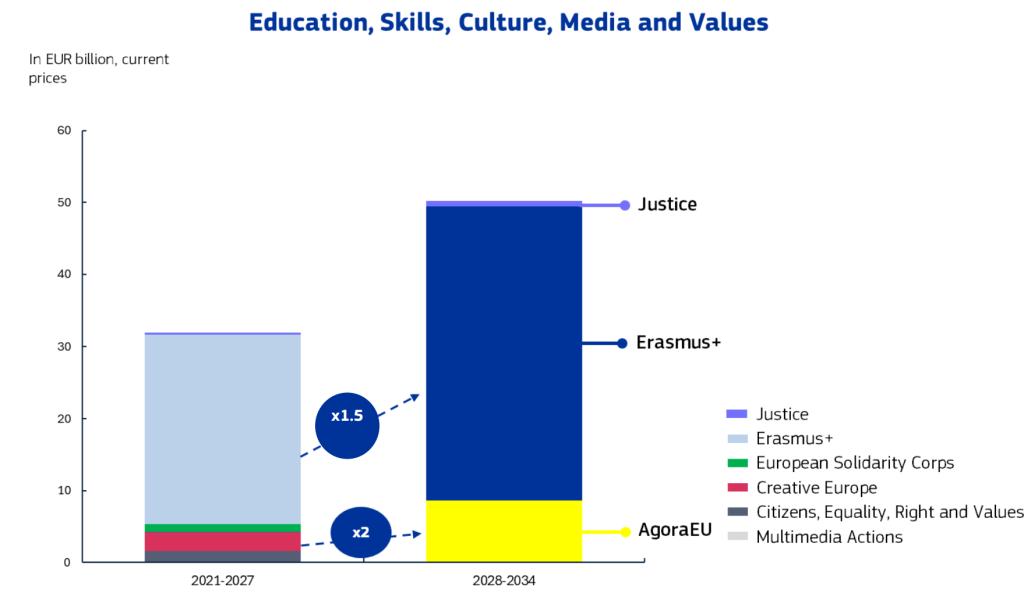
National and Regional Partnership Plans, €865 billion
Competitiveness is closely linked to both ability and confidence: and together with skills acquisition, the citizens of Europe need to feel empowered to grab the opportunities the future will bring. Naturally, supporting people and the unique EU social model is at the very heart of the EU's long-term budget for the next decade. The new MFF proposes a 50% increase (equating to around 50 billion) for the budget of Erasmus+ to foster education and democratic values. This goes hand in hand with actions under the ESF+, which will be implemented through the new National and Regional Partnership Plans; and strengthens the European Pillar of Social Rights and its capacity to foster the creation of quality jobs, skills development, and social inclusion across the EU Member States and its regions. As part of the plans (which all include a social target of at least 14%), the European Social Fund Plus will contribute to promote equal opportunities for all and foster social inclusion.
Want to know more?
Read the Communication of the European Commission on the Multiannual Financial Framework (MFF) 2028-2034: "a dynamic EU budget for the priorities of the future". See also the proposal for a Council Regulation laying down the multiannual financial framework for the years 2028 to 2034, and its Annex.
There are also 2 Commission staff working documents accompanying the budgetary proposal, and supporting documentation and resources available on the official page for the Multiannual Financial Framework of the European Commission.

